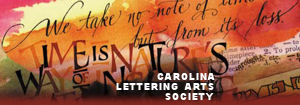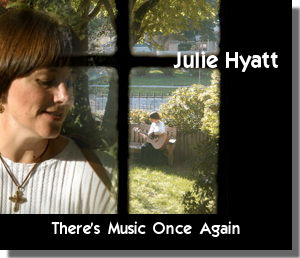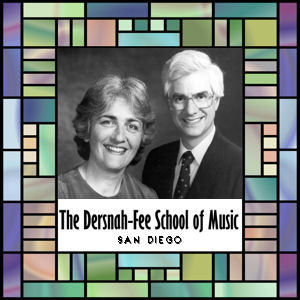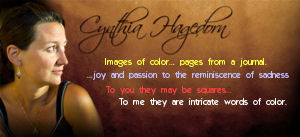| |
Passage: 138 B.C. - A.D. 1611. Empire Brass Quintet, Rolf Smedvig, director. Telarc.
Caveat emptor. Smedvig, probably America's greatest trumpeter, trying to compete with the commercial success of Chant and Officium, has gathered together other superb musicians and turned out an amalgam of undistinguished, pretentious arrangements that Telarc is promoting heavily. This album will certainly not appeal to those in search of authentic ancient music nor, most likely, of those seeking the latest New Age pabulum. [January 5, 1995]
Immortal Beloved: Music of Beethoven (film soundtrack). Sony.
If snippets of great works, powerfully performed, are your cup of tea you will love this album. These selected movements from symphonies, concerti, and other works, around which the final architecture of the film Immortal Beloved was created, feature brand new performances by the likes of conductor Sir Georg Solti, pianist Murray Perahia, and violinist Gidon Kremer. But why is actor Gary Oldman's name in larger type than Beethoven's on the CD jacket? [February 2, 1995]
Tchaikovsky: Incidental Music for The Snow Maiden. Detroit Symphony Orchestra, Neeme Jarvi, conductor. (Chandos Records)
Neeme Jarvi demonstrates once again, as if proof were really needed, that he has raised the Detroit Symphony Orchestra to its erstwhile status of a world class ensemble, playing quite possibly better now than ever before.
After a series of records featuring admirable performances of American gems, the Estonian-born conductor here returns to his eastern European roots with sharp stylistic focus and inspired melodic lines. While not among his symphonic masterpieces, Tchaikovsky's Incidental Music to the play The Snow Maiden is delightfully lyrical, and Jarvi evinces just the right balance of whimsy and drama.
Recorded in the wonderful acoustic of Detroit's Orchestra Hall, the disc is a sonic delight, even if the soloists and choir are slightly distant. Mezzo-soprano Irina Mishura- Lekhtman brings a sweet voiced and spritely innocence to Lelia's songs, and tenor Vladimir Grishko valiantly fights through some angular writing. The Musical Society Choral Union of the University of Michigan, Ann Arbor's 180-voice town-and-gown ensemble, is well prepared and manages the Russian transliterations well. [The Saginaw News, April 15, 1995]
The Echoing Air: Music of Henry Purcell. Sylvia McNair, soprano. The Academy of Ancient Music, Christopher Hogwood, director. (Philips Records)
American soprano Sylvia McNair can only be described as ubiquitous the last few years; at latest count she appears in over 50 recordings, quite a number for anyone, especially of her relative youth. This latest disc is her and conductor Christopher Hogwood's contribution to the 300th anniversary year of English composer Henry Purcell's death. Undoubtedly this year will produce many wonderful recordings of this Baroque composer's genius, and The Echoing Air may be counted among the more welcome additions to the catalog.
McNair is heard to wonderful effect here, offering jewel-like miniature conceptions of 14 of his most memorable and delightful songs. Hogwood provides energetic accompaniment, and intersperses 9 instrumental numbers to make up four miniature suites. [The Saginaw News, April 15, 1995; Spectator Magazine, April 20, 1995]
Farinelli: Il Castrato soundtrack: Music of Handel, Broschi, Porpora, Hasse, and Pergolesi. Ewa Mallas-Godlewska, soprano and Derek Lee Ragin, countertenor. Les Talens Lyriques, Christophe Rousset, conductor. (Auvidis Travelling Records)
As strange as it might seem today, the absolute rage of opera in the first half of the 18th century were castrati, men who had been surgically "altered" while boys, thus maintaining a singing range we could call today soprano. Originally the practice was to provide the upper range of singers for the church, particularly the Vatican, where women were not allowed to sing.
Once these men of wide range and vocal power were discovered by composers such as Handel, they were paid enormous sums to appear in opera, where they achieved near cult status. The film Farinelli is a fictionalized story of a portion of the life of Carlo Broschi, who styled himself Farinelli to honor the men who sponsored his early musical education, and who was without question the most famous castrato who ever lived.
"One God, one Farinelli!" was the impassioned cry of an English aristocratic female fan.
Obviously, there are today no men (and no women either, for that matter) with the particular timbre and wide range that the castrati were known to have, so making a soundtrack for the film was a challenge only computers could meet. French computer and acoustic experts artificially fused the high regsiter of soprano Ewa Mallas-Godlewska and the lower register of countertenor Derek Lee Ragin, producing "a voice" capable of at least the required range.
However, both historical accounts from Handel's day and turn-of-the-century recordings of the last castrato, Alessandro Moreschi, clearly show that the quality of the castrato voice was more toward the purity and clarity of the boy treble rather than the female soprano. So, even though this is an entertaining disc of both well-known and obscure Baroque arias, one cannot come away from it with any sense that one has heard a "recreation" of the castrato voice.
The editing is almost seamless, with only the occasional tell-tale gap between the two voices, and if one could just listen to it for its own sake, there are some fine performances here. Of most interest, perhaps, are the 3 arias (one arranged for orchestra alone) by Farinelli's brother, composer Riccardo Broschi. Except in this context, no one programs his music these days, but these excerpts prove he wrote some melodies worth hearing. [The Saginaw News, April 15, 1995; Spectator Magazine, April 20, 1995]
  
Schumann: Myrthen; Lieder und Gesange; Die Lowenbraut. Lynne Dawson, soprano. Ian Partridge, tenor. Julius Drake, piano. (Chandos Records)
One had only to listen to the two duets they had in the complete set of Handel's Chandos Anthems to know that England's foremost lyric tenor, Ian Partridge, had found his perfect singing partner in soprano Lynne Dawson. There are, alas, no duets in this current disc, but Chandos has happily reunited them in performance of Myrthen, Schumann's epic anthology of love poems, written for and presented as a wedding gift to his beloved Clara.
Dawson is radiant in her 13 selections, which include among them virtually all of the more famous songs from the collection. Her voice has fire and brilliance when called for, but she can also deliver warmth and simplicity, as in the lullaby "Hochlandisches Wiegenlied."
For his part, Partridge simply continues to amaze with his ability to pull out the deepest, most profound meaning in a vocal line with seeming effortless and consummate grace. Listening on headphones, one can more easily catch the subtlest of nuances in Partridge's performance, and they combine with an endearingly sweet voice and superior, finely honed technique.
Partridge is also heard in the Op. 27 Lieder und Gesange, as well as the extended song Die Lowenbraut, to close out the disc. The former cycle allows Partridge to run the gamut of hurt despondency ("Was soll ich sagen?") to the bubbly insouciance of Robert Burns ("Dem roten Roslein").
Pianist Julius Drake understands and translates the inherent drama in these works with clear and unforced style. Perhaps the only flaw in the disc undoubtedly derived from the year's time lapse between recording sessions. The piano all too often overpowers Partridge, though by the time Dawson came to the studio, the imbalance was obviously rectified. [Spectator Magazine, April 20, 1995]
| |











